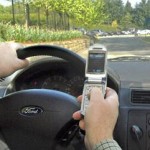 As a bit of peurile entertainment, you can’t really beat FailBook. For those not accustomed to the site, it provides a humerous look at the dopey things people put onto Facebook each day. A rather alarming number of entries seem to consist of people posting status updates whilst driving their cars. Some even go as far as posting a photo of their speedo to prove just how fast they were going.
As a bit of peurile entertainment, you can’t really beat FailBook. For those not accustomed to the site, it provides a humerous look at the dopey things people put onto Facebook each day. A rather alarming number of entries seem to consist of people posting status updates whilst driving their cars. Some even go as far as posting a photo of their speedo to prove just how fast they were going.
It’s a stark reminder of just how addicted we’ve become to social media, with our mobile devices allowing us to be wired in whenever we want. Some new research set out to explore just how addicted we are. They wanted to test how strong our willpower was when it came to sending a text message.
They conducted a variant on the famous Stanford marshmallow experiment. In the original experiment children were offered a marshmallow, but were told if they waited five minutes before eating it, they’d get another one. It was designed to test deferred gratification, and it’s said to be a very good predictor of future life success.
In this modern version of that experiment, participants received a text from a significant other. They were told they could have $5 if they replied straight away, or a larger sum if they waited (the period of time varied from 1 to 480 minutes).
When these kind of experiments have been used to measure addictions, people often choose to take the small hit right away rather than hang on for a larger hit later on.
Are text messages as addictive?
Interestingly, the research suggested not. They found that people were much better able to resist the urge to send a text than when faced with other addictive dilemmas, albeit sending that message was still seen as very important.
To further test their hypothesis, the researchers created another experiment, this time varying who the text message was sent from. Some participants received a message from a loved one, some from a friend, and others from a casual acquaintance.
The importance of the message had an important impact, with people much more able to resist the immediate urge to text when the message was not from somone deemed important. So in other words people were thinking about whether to respond rather than merely acting on impulse.
So whilst youngsters aren’t addicted to texting in the way people are addicted to drugs, when they receive a message from someone important, they do nonetheless value speed of response highly.
The researchers urged caution in the interpretation of their findings, pointing out that this is the first time anyone has tried to apply the methodology of “delay discounting” to information-based rewards that are difficult to quantify. However, they didn’t acknowledge what is surely an even more important limitation in their research – the fact that the students were making hypothetical decisions. There were instances where they said they’d wait to answer their phone, but would they have done if it were for real?